We are using C89 on an embedded platform. I attempted to print out a size_t, but it did not work:
#include <stdio.h>
int main(void) {
size_t n = 123;
printf("%zu\n",n);
return 0;
}
Instead of 123, I got zu.
Other specifiers work correctly.
If size_t exists shouldn't zu also be available in printf?
Is this something I should contact my library vendor about, or is a library implementation allowed to exclude it?

